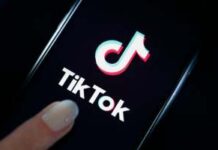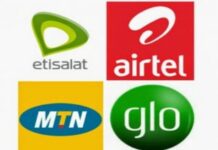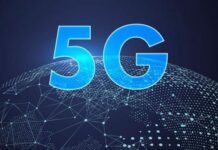Digital switchover falters, 29 states remain on analogue
TECHDIGEST – There appears to be no end in sight for Nigeria’s Digital Switch Over (DSO) journey as the paucity of funds, lack of political will and new technicalities may have stalled its progress.
The Guardian understands that the DSO phased roll-out plan has been jettisoned owing to the perceived tediousness of the process, slowness, funding issues and fast-evolving technology. In its place, the Federal Government plans to execute a uniform roll-out, the date of which is not certain because of the change of administration.
In the phased rollout, only about eight states have been covered, albeit partially. The states include Lagos, Abuja, Kano, Rivers, Kwara, Enugu, Osun and Plateau.
The plan by the administration of ex-President Muhammadu Buhari, as championed by the then Minister of Information and Culture, Lai Mohammed, and the National Broadcasting Commission (NBC), was to complete the process by December 7, 2022.
While Lagos officially transited from analogue to digital broadcasting on April 29, 2022, and hoped to complete the process by October of the same year, the timeline was not achieved, according to sources privy to the process.
According to the timetable, Kano followed on June 3, Rivers on July 7, while Yobe did July 15, 2022. The DSO was done partially in those states as only some cities have been covered.
After then, other fixed dates were Gombe (August 8, 2022), Imo (August 24, 2022), Akwa Ibom (August 31, 2022), Oyo (September 9, 2022), Jigawa (September 23, 2022), Ebonyi (October 10, 2022), Katsina (October 12, 2022), Anambra (November 4, 2022) and Delta (November 11, 2022). But they did not materialise as expected with other states penciled down for completion on or before December 2022.
Indeed, the International Telecommunications Union (ITU) originally agreed with 54 African countries that analogue TV should be switched off by 2015. Digital Terrestrial Television (DTT) has reached 90 per cent of homes in only 14 countries.
Findings by The Guardian showed that switchover is completed in Côte d’Ivoire, Burkina Faso, Gabon, Namibia, Botswana, Zambia, Rwanda, Tanzania, Kenya, Malawi and Eswatini (Swaziland), while the biggest economy in the region, Nigeria, is yet to find its DSO footings, almost a decade into the process.
According to DigitalTV Europe, while referencing research by Dataxis, sub-Saharan Africa (SSA) as a whole, will continue to see slow growth of DTT homes through 2027, with analogue broadcasting remaining on air in many countries. It noted that the proportion of digital terrestrial households will increase from 38 per cent today to 41 per cent by 2027, with Direct To Home (DTH) remaining the most widely used TV distribution technology.
READ ALSO: TNW Conference 2023: NITDA Unveils N10bn Funds For Startups, Hubs, Others
The research showed that while government switchover programmes have stalled or progressed slowly, commercial broadcasters have used digital transmission to increase their reach with payTV services. DTT accounts for 24 per cent of direct pay TV today.
As stated earlier, so many factors have been attributed to the slow progress in Nigeria’s DSO journey.
A source that worked with the immediate past administration gave further insights into the delay in analogue to digital transition in the country.
He said, having realised that doing state-by-state switchover had become very tedious and costlier, there was an agreement reached with StarTimes for the utilisation of their facilities and technology, already spread across the country. The source said the agreement was reached but had not been implemented before the change of government.
“You know, before, we were launching state-by-state. I think about eight states were launched. It was realised that that would not work. So, the team decided to reach an agreement with StarTimes because it (StarTimes) already has its mast and other facilities spread across the country. So, it was agreed that the facilities should be used to roll-out simultaneously across the country, which is almost like fast-tracking the process. The agreement was signed. It was at the level of implementation that the Buhari-led administration left office.”
According to him, if the agreement was implemented early, the DSO could be completed within a month. He, however, said there are still some huge financial implications to the entire process.
“Startimes has their mast installed already on the ground. All we need to do is to appear at the centre whenever we are ready and turn on the switch and everybody can begin to enjoy it. In other words, we are almost there. The entire country can be launched in one day because of the Startimes agreement. But then, there is a financial implication. Startimes, whose mast we are going to use need to be paid and not small money after all,” the source said.
On the supposed financial implications to Startimes, the source said, while Startimes didn’t charge because of the (Startimes/NTA alliance), it only agreed in principle that their facilities could be used and with a caveat that FG was still owing for the earlier launches.
On when the DSO project can be completed, he said it depends on the new government. According to him, if a new minister is appointed tomorrow, “he will be briefed and then decide on how to go about it. It can ask for a new agreement.”
He said should the new minister ask for a new agreement, many options are open to him. He said he can decide to use a satellite, in which case, masts are not needed. He said though some African countries use Startimes facilities, some areas still have to depend on Satellite, “the new minister can also look at the usage of Satellite to consolidate on Startimes facilities.”
According to him, another challenge confronting the DSO is the fast-evolving technology. “The thing is that when DSO was conceived, technology was not at this level. Right now, technology has moved beyond the level we were some 10 years back. So, the architecture for DSO is supposed to have changed and even become cheaper now. Then, you virtually needed to have a mast everywhere, but now, I don’t think that is necessary. You can decide to use Satellite directly, DMT/DSB, which is what Arise is using.
Read Also:
“The stakeholders have to come together, review the White Paper (which has to change) because that is the grund norm for DSO. The White Paper is obsolete because of evolving technology. So, what can be done now is to bring all stakeholders together, work out a new modality that will work, faster by far and then agree and bring an addendum to the White Paper and then roll out immediately,” he added.
Efforts to get NBC’s Director-General, Balarabe Shehu Ilela, to provide an update failed, as he did not pick up his calls nor did he reply to text messages sent to his mobile phone. However, an official of the parastatal, Susan Obi, who spoke with The Guardian, simply said the DSO process was on, “we shall brief the media soonest on new developments around the transition.”
From StarTimes’ perspective, the Chief Executive Officer, Tunde Aina, said as a PayTV operator in the country, StarTimes has covered more than 70 cities in 35 states including Abuja. Aina said DSO is about FreeTv and is now deployed in about eight cities, “but even then, the eight cities are not well covered yet. The cities are Lagos, Abuja, Kano, Port Harcourt, Ilorin, Enugu, Osogbo and Jos.”
Aina confirmed that there was an MoU signed between StarTimes and ITS on the DSO project, but that it had not been implemented.
“The idea of MoU is that because Startimes has already rolled out virtually in all the country, ITS (FreeTV) can be available wherever the company is. But there are so many technical issues that have not been resolved till this moment, including agreed charges,” he said.
Secondly, he said FreeTV, though it is free to the subscribers, the channels on the platform are supposed to pay the signal distributor. He said for example, Channels or TVC, is supposed to pay the Signal Distributor to carry their signals because the idea of the switch over or off is that no station will own a transmitter, that is no station can transmit their signal anymore because those transmitters are analogue transmitters.
“So, now that you are on a digital platform, you have to be carried by a carrier and in this case, ITS or Pinnacle. They are the two licensed Signal Distributors. It will amaze you that they have not even agreed on tariffs. That is ITS does not even know what they can earn, that is no income so to speak. This DSO journey in Nigeria has been on for close to a decade and is funded by Federal Government and the government cannot continue. So, they need to agree and fix a rate between broadcasters and the Signal Distributors that is when the process can take off properly and that has not been fixed. It is the responsibility of the Federal Government to do that, precisely NBC,” Aina stated.
According to the CEO of ITS, Sadeeq Omeiza Musa, the task force is seriously looking for a way forward, the hindrance has been a lack of funding.
Musa said DSO is a huge project and it is not easy to put money into broadcasting and transmission equipment across the country.
“The last idea we had from the Ministerial Task Force was that what we needed to do was to be able to cover the whole country by 70 per cent, then the remaining one, we will deploy DTH (Satellite) because, at some point, we will need Satellite to transmit the signals to the digital transmitter.
“So, the major challenge is that to acquire these digital transmitters is tough because they are very expensive and you know that people switching from analogue to digital are still using analogue transmitters. So, the idea is to also integrate local content, but that is not to say that even on satellite, you cannot integrate Satellite through IT. It can’t be done, but DTT is still very important since the frequency we are using for this project is leased to telecoms because the idea is to migrate everybody to a digital platform on DTT to maximise the spectrum and also at the end of the day, lease the spectrum through NCC to the telecoms so that we have the advantage of having a good Internet penetration,” he said.
Aina, who appreciated the former Minister of Information and Culture for all his efforts, said during his tenure, the team went to AFREXIM Bank in Egypt in early 2022 to seek funding for the project, while also awaiting funding from the sales of spectrum through the Nigerian Communications Commission.
According to him, the belief is that if we use the set-top box of Startimes, customers can get 30 channels to be watched free of charge when they pay N1,500 activation fees and “if you are interested you can go into their bouquet and subscribe per month. Same thing would happen to the Set-top box of FreeTv too. On the set-top box of FreeTV, you will be able to watch the content of PayTV when you pay a monthly subscription, almost 30 free channels. So, every Nigerian would now be able to watch television without stress.”
On the cost implication of DSO, a member of the TaskForce, who preferred anonymity, said the challenge is that Naira is not stable.
According to him, for a full site to come up with all the equipment as of when we started this DSO journey, $1 million (N250 million) for generators, transmitters and others. So, you make provision for the next 10 years because technology keeps evolving.
However, currently, he said for a site with a generator and others, “we should be looking at about $500 million. This also depends on who is bringing the transmitter. The reason I said the government may not be able to solely fund the project, there must be collaboration and FG must collaborate with us.
Meanwhile, more awareness would need to be carried out in Lagos and indeed other parts of Nigeria for people to be aware that there is a transition from analog to digital broadcasting in the country. This is even as there are no traces of some of the accredited designated centres for the sales of set-top boxes (STB) for FG’s FreeTV.
Checks on the Ilasamaja; Ikeja and Lagos Island centres showed that nothing appeared to have started in these centres. A businessman, Funso Gbadebo, told The Guardian that he is not aware of any digital transition, “not to talk of the FreeTV initiative of NBC.”
Alaba Market-based importer, Melvin Ndubuisi, also said he is not aware of the switch-over plan by the Federal Government. “What is switching over? I am just hearing this for the first time. I think there should be more awareness that the Federal Government wants Nigerians to participate in the programme,” Ndubuisi stated.
On this, the ITS boss said The FreetV is on, but the other obstacle is that there is no awareness around it.
He called out NBC, which he said is the facilitator of the DSO project to create more awareness aggressively. “We have two transmission sites in Lagos, Pinnacle has one and we too at ITS have one at Tejuosho in Yaba and that covers about 50-kilometer radius. That means that if you go to Badagry and you have our Set-top box, you will get our signal in that place. But the issue is how many people are aware? The awareness is crucial and NBC needs to do more than what they are doing now,” he stated.
The Guardian




















